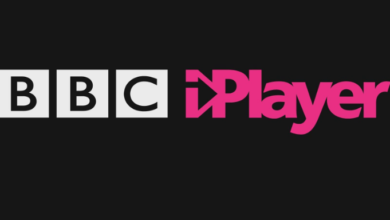Facebook Reuters Spanish Arabicfischeraxios

In this era of digital communication, the spread of misinformation has become a pressing concern. With social media platforms like Facebook playing a significant role in shaping public opinion, the need for fact-checking and accuracy is more crucial than ever.
One recent partnership that aims to tackle this issue head-on involves Facebook and Reuters, two influential entities joining forces to combat misinformation in Spanish and Arabic.
The collaboration between Facebook and Reuters holds great significance due to the increasing importance of fact-checking in these languages. By focusing on Spanish and Arabic, they are addressing two major linguistic communities with vast populations that are highly active on social media.
This partnership acknowledges the potential impact of misinformation within these communities and seeks to enhance efforts in curbing its spread. The objective nature of this collaboration positions it as a proactive response towards countering fake news, ensuring that accurate information reaches a wider audience.
By doing so, they aim to empower individuals by providing them with reliable information necessary for making informed decisions about their lives and society at large.
The Importance of Fact-Checking in Spanish and Arabic
The significance of fact-checking in Spanish and Arabic languages lies in its ability to ensure the accuracy and reliability of information, thereby promoting informed decision-making and fostering a culture of trust among speakers of these languages.
Fact checking challenges are present in any language, but they can be particularly pronounced in Spanish and Arabic due to the inherent complexity and nuances of these languages. Language barriers can make it difficult for non-native speakers to navigate through misinformation or disinformation, as they may struggle with understanding the subtle meanings or cultural references embedded within texts.
Moreover, false information can spread rapidly on social media platforms like Facebook where individuals from diverse linguistic backgrounds interact. This is why fact-checking plays a crucial role in debunking falsehoods, correcting misunderstandings, and providing accurate information that empowers individuals to make well-informed decisions based on reliable sources.
By ensuring that accurate information is readily available in Spanish and Arabic, fact-checkers contribute to an environment where truthful narratives prevail over misinformation or disinformation, ultimately fostering a culture of trust among language speakers.
Facebook and Reuters Partnership: Combating Misinformation
Collaboration between a major social media platform and a reputable news agency seeks to address the issue of misinformation.
Facebook has partnered with Reuters in an effort to combat the spread of false information on its platform.
This collaboration aims to enhance fact-checking techniques and provide users with accurate and reliable information.
By working together, Facebook and Reuters are able to leverage their respective expertise in technology and journalism to identify and debunk misleading content.
Social media platforms have become powerful tools for sharing news and information, but they also present challenges in terms of ensuring the accuracy and reliability of the content being shared.
This partnership recognizes the importance of addressing this challenge by implementing effective fact-checking mechanisms that can help prevent the spread of misinformation.
The ultimate goal is to empower users with credible information so that they can make informed decisions while navigating through digital spaces.
See also Brazil Iphones 2.38mfrontinireuters
Assessing the Accuracy of Information: Role of Reuters
Assessing the accuracy of information becomes a crucial task in the fight against misinformation, as it acts as a guiding compass to navigate through the treacherous digital landscape. In order to combat the spread of false or misleading information, fact checking techniques play a vital role.
Reuters, in its partnership with Facebook, assumes the responsibility of evaluating sources and verifying the authenticity of news stories shared on social media platforms. This involves employing rigorous methodologies and tools to scrutinize claims made by various sources before they are disseminated to users. By carefully examining evidence, conducting interviews, and cross-referencing with reliable sources, Reuters aims to ensure that only verified and accurate information is presented to users.
Such objective evaluation plays a significant role in maintaining trust among users and strengthens their ability to make informed decisions based on reliable information.
Enhancing Efforts to Curb Misinformation in Spanish and Arabic
Enhancing efforts to curb misinformation in Spanish and Arabic involves implementing strategies and tools that aim to strengthen the reliability of information shared in these languages, ensuring that users are equipped with accurate and verified content to make informed decisions.
Language barriers pose significant challenges in fact-checking across different languages, as nuances and cultural context can greatly impact the spread of misinformation.
Understanding the cultural nuances specific to Spanish and Arabic is crucial for effectively addressing misinformation in these languages. It requires a deep understanding of the social, political, and historical factors that shape the dissemination of false information within these communities.
By developing culturally sensitive fact-checking techniques, investing in language-specific resources, and collaborating with local experts, platforms like Facebook can enhance their ability to combat misinformation in Spanish and Arabic.
This not only strengthens the reliability of information but also supports individuals’ freedom by providing them with accurate information necessary for making well-informed choices.
Frequently Asked Questions
How does Facebook determine which news sources to partner with for fact-checking in Spanish and Arabic?
The process by which news sources are selected for fact-checking in Spanish and Arabic by Facebook involves considering the role of cultural context. The partnership with Reuters aims to enhance the credibility of news in these languages, benefiting the audience’s desire for freedom.
What specific steps does Reuters take to fact-check information in Spanish and Arabic?
Reuters employs a rigorous fact-checking process in Spanish and Arabic. They utilize language experts, conduct extensive research, collaborate with local journalists, and use advanced technology to overcome language barriers.
How does the Facebook and Reuters partnership help combat misinformation on social media platforms?
The partnership between Facebook and Reuters plays a crucial role in combating misinformation on social media platforms. Utilizing artificial intelligence for fact checking helps to identify and flag false information, thereby enhancing user trust in these platforms.
What challenges do fact-checkers face when assessing the accuracy of information in Spanish and Arabic?
Assessing the accuracy of information in Spanish and Arabic poses formidable challenges to fact-checkers. These linguistic terrains are like treacherous mountains, where nuances, cultural contexts, and linguistic intricacies can easily mislead even the most diligent truth-seekers.
Are there any plans to expand the fact-checking efforts to other languages in addition to Spanish and Arabic?
There are expansion plans to extend fact-checking efforts beyond Spanish and Arabic, despite language barriers. This will help overcome challenges in assessing the accuracy of information in other languages and ensure a more comprehensive approach to combating misinformation.
Conclusion
The partnership between Facebook and Reuters aims to address the issue of misinformation in Spanish and Arabic languages. Fact-checking plays a crucial role in combating the spread of false information, which can have serious consequences on individuals and societies.
By working together, Facebook and Reuters are able to assess the accuracy of information being shared on the platform, ensuring that users are provided with reliable and trustworthy content.
Reuters, with its expertise in journalism and fact-checking, plays a vital role in enhancing efforts to curb misinformation. Their rigorous verification process helps identify false or misleading information, providing users with accurate and credible news.
This collaboration allows for a more comprehensive approach to tackling misinformation in different languages, reaching a wider audience and ensuring that everyone has access to reliable information.
In conclusion, the partnership between Facebook and Reuters is an important step towards combating misinformation in Spanish and Arabic languages. By utilizing fact-checking methods and working together to assess the accuracy of information, they are able to provide users with reliable content.
However, it is essential for individuals as well to critically evaluate the information they come across online. Are we doing enough as individuals to verify the truthfulness of what we read?




